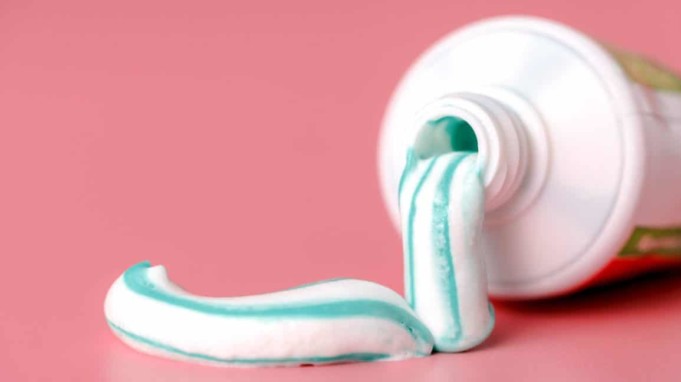The toothpaste aisle is easily the most confusing place in any drugstore. I often see shoppers spend an inordinate amount of time standing there, eyes glazed over, reading numerous boxes, before just throwing one in the basket with resignation.
If you’re one of those people, take heart. It’s not your fault. Marketing and advertising has left most of us pretty clueless about which ingredients actually matter and which ones are just there to charm us into buying.
Use these few tips to help you make sense of the ever-growing options in the oral care aisle.
Fluoride
Fluoride is no trumped-up marketing ploy – it really does help your teeth and should be in your toothpaste. It halts tooth decay by upping your teeth’s resistance to plaque and sugars.
Though regular fluoride is especially critical for children, it’s still very beneficial for adult teeth.
Those with a higher risk for tooth decay benefit even more. If you have gum disease or frequently get cavities, you should be getting more fluoride than what’s in your toothpaste – your dentist can give you fluoride treatments a couple times a year.
However, you shouldn’t seek out an over-the-counter product with extra fluoride. Most brands have about the same amount, which is regulated by the FDA due to the fact that too much fluoride can cause problems.
Sodium Lauryl Sulfate
This ingredient is common in many cosmetic and hygiene products. SLS is a surfactant and detergent, which is a fancy way of saying that it makes a product foam up and spread well. It’s not an active ingredient as it offers no health benefit on its own.
If you prefer an SLS-free toothpaste, there are several options on the market that are equally as effective as toothpastes that do contain it.
Baking Soda
I don’t want to burst your bubble, but I have to tell you that those toothpastes that proudly boast baking soda don’t offer much in the way of health benefits to teeth. However, it doesn’t do anything harmful either.
Baking soda is good for removing some surface stains and giving you a clean feeling, but that’s about it. So, feel free to continue using your favorite baking soda toothpaste if you love it.
Whitening Agents
Whitening toothpastes are all the rage, but they may cause problems for some. Toothpastes that claim whitening properties contain abrasives that can harm tooth enamel and lead to increased tooth sensitivity.
No drugstore toothpaste has significant power to whiten teeth, so they may not be worth the risks. The best bet for stained teeth is still an in-office dentist whitening treatment.
Plaque vs. Tartar Control
Plaque forms when bacteria builds up on teeth, which happens most commonly after eating carbohydrates.
The best way to fight plaque is to brush (with any toothpaste that contains fluoride) twice a day and use an anti-bacterial mouthwash – look for ones that contain triclosan.
Tartar is caused by a build-up in plaque – when plaque is left on teeth, it hardens and solidifies due to the calcium in your saliva.
The bad news is that tartar that’s already formed cannot be removed by a toothbrush and toothpaste alone, no matter how good the toothpaste.
Future tartar, however, can be prevented. One helpful ingredient is pyrophosphate, which helps regulate calcium levels in saliva.
All toothpastes that are approved the FDA and accepted by the American Dental Association are safe and effective, and very similar to one another. If you know you have specific needs that require certain ingredients, talk to your dentist or do some research online to find the one that works best for you.
Author Bio:
Kenneth B. Mak, DDS is a partner at MKD Dentistry, leading dentists in Los Angeles. In addition to providing personalized care to his patients, he enjoys writing to educate people about dental hygiene and care. Dr. Mak is a proud member of the American, California and San Gabriel Valley Dental Associations. More information is available at MKD Dentistry.












